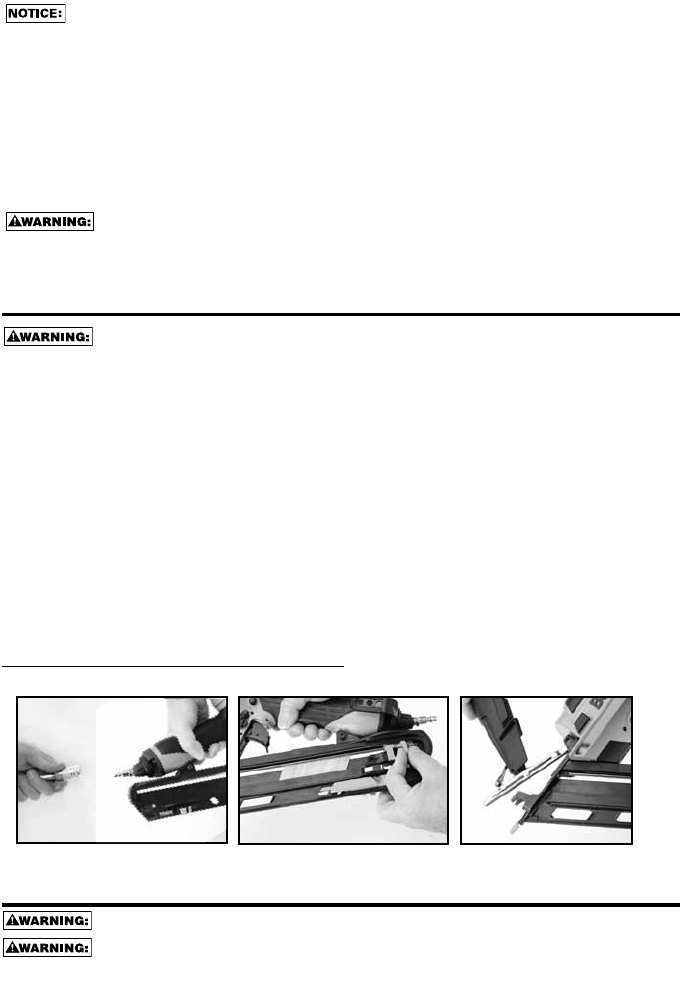
-13-
This tool operates differently from all other BOSTITCH tools. To provide maximum visibility for
accurate fastener placement, the trip of this tool is normally in the “depressed” or “up” position.
On all other BOSTITCH tools and most other tools, the trip is normally in the “down” position.
This tool has a selectable trigger mode which determines if the tool drives fasteners in sequential or
contact mode. In sequential trip mode, when the tip of the nose is placed on the work surface and the
trigger is pulled, the trip moves out from the tool to detect the work surface. The tool nose tip must be
in contact with the work surface to actuate. If the trip does not detect the work surface close enough to
the nose of the tool, the tool will not actuate.
In contact trip mode, when the trigger is depressed and held, the trip will move out from the tool.
Contacting the work surface with the tool nose, will actuate the trip mechanism driving a fastener each
time the work surface is contacted.
If the tool has been dropped or you suspect tool damage perform tool operation check as
defined in the tool operation check section.
JAM CLEARING PROCEDURE
Disconnect tool from air supply before making adjustments or before attempting any part
assembly or disassembly.
On occasion nails can jam in the nose of a pneumatic nailer. This can be caused by striking a metal plate in
the wall, drywall screw, or some other hard object. The BTFP72155/BTFP72156 features open drive channel
architecture for jam clearing. To clear a jam follow this procedure:
1. Disconnect the tool from the air supply.
2. Release the pusher so it is no longer applying force to the nail sticks.
3. Open the jam clearing nose door by pulling down and then up on the latch.
4. Remove the jammed fastener. In certain circumstances, pliers may be required to remove the fastener.
5. Close the jam clearing nose door latch.
6. Pull nail pusher back behind nail sticks.
7. Perform tool operation check.
BTFP72155/BTFP72156 JAM CLEARING
TOOL OPERATION CHECK
Always remove all fasteners from tool before performing tool operation check.
if the tool is dropped or you suspect tool damage perform tool operation check.
1
2
3


















